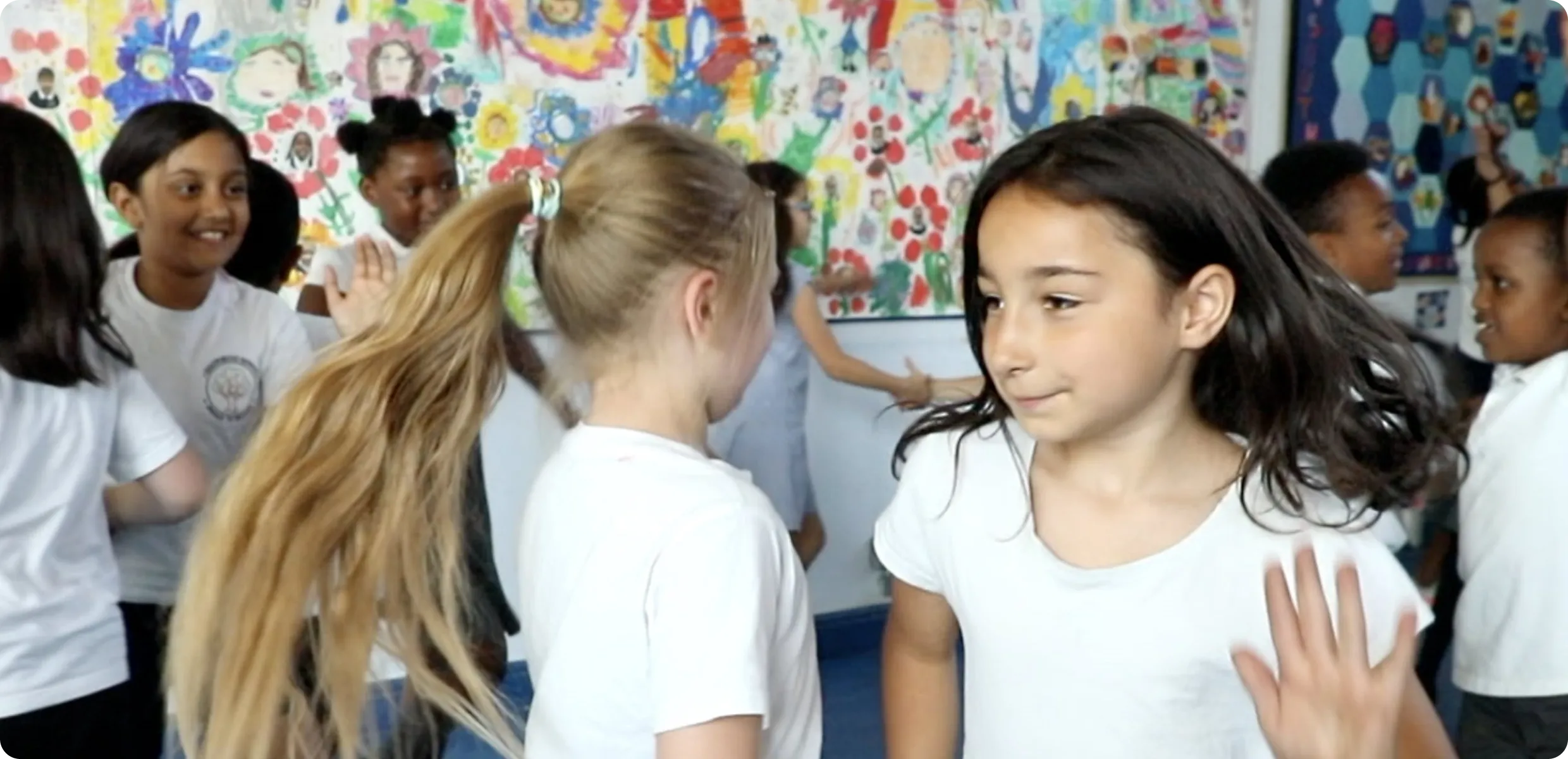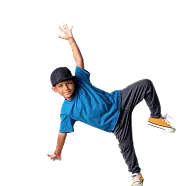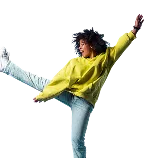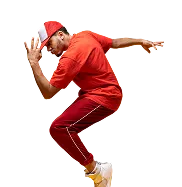Dance for Schools — Benefits for Pupils and Teachers

Dance in schools is more than just a fun activity; it’s a way to enrich the curriculum, support pupil wellbeing, and create memorable learning experiences. At Dance Days, we’ve spent over a decade helping schools across the UK deliver engaging, curriculum-linked workshops that inspire creativity and confidence in every child.
From boosting PE provision to linking dance with history, literacy, or cultural events, workshops bring the classroom to life in a way that textbooks cannot. Teachers often tell us that pupils remember these sessions long after the school day ends, because dance combines physical movement, creativity, and collaboration.
Internal link opportunity: Guide teachers to the School Workshops page for a full overview of available options.
Dance in the National Curriculum
Dance is a recognised component of the PE National Curriculum from Key Stage 1 (KS1) through to Key Stage 3 (KS3). This makes it not just an enrichment activity, but a valuable part of statutory teaching.
- KS1: Pupils explore basic movement patterns, express ideas through dance, and develop coordination.
- KS2: Children build on those skills with sequences, teamwork, and an understanding of rhythm and timing.
- KS3: Students apply these foundations to more complex routines, exploring performance, creativity, and evaluation.
By integrating dance workshops, schools can tick curriculum boxes while offering pupils something fresh and exciting. Unlike traditional PE activities, dance is non-competitive, inclusive, and adaptable — perfect for mixed-ability classes and SEND pupils.
Workshops can also extend beyond PE. For example:
- History workshops: pupils re-enact cultural traditions or key historical events.
- Cultural workshops: pupils celebrate festivals such as Diwali or Chinese New Year.
- Wellbeing workshops: sessions focus on mindfulness, confidence, and stress relief.
These connections make dance an incredibly versatile teaching tool that supports multiple curriculum areas at once.
Key Benefits of Dance Workshops
Dance workshops in schools aren’t just enjoyable — they deliver measurable benefits for health, inclusivity, and child development. At Dance Days, we design every session to ensure pupils of all ages and abilities feel the impact.
1. Health and Physical Education
Dance offers a fresh way to meet PE curriculum requirements while making fitness enjoyable. Instead of traditional competitive sports, pupils explore:
- Coordination and balance through structured routines.
- Spatial awareness as they move around the room in groups.
- Cardiovascular fitness from energetic dance styles like Afrobeats or Samba.
Teachers often notice improved focus and mood after workshops, as physical activity helps reduce stress and boosts energy levels. This makes dance an excellent complement to both PE lessons and wellbeing initiatives.
2. Inclusive Learning for All Pupils
One of the biggest strengths of dance is its adaptability. Unlike many sports, it requires no prior skill level and can be scaled to suit every pupil:
- KS1 pupils can join in with simple, repetitive actions.
- KS2 classes can handle partner work and more complex sequences.
- SEND pupils benefit from visual cues, peer support, and multi-sensory props like ribbons or scarves.
Because it’s non-competitive, dance helps every child feel successful. Teachers have shared stories of quieter pupils shining during performances or children with SEND fully engaging thanks to accessible activities.
For schools seeking inclusivity, dance workshops also connect beautifully with cultural celebrations. From Irish dance for St Patrick’s Day to Bollywood for Diwali, workshops allow every pupil to see their heritage reflected and appreciated.
3. Child Development and Confidence
Dance is more than movement — it’s a powerful developmental tool. By encouraging pupils to express themselves through choreography, workshops build:
- Confidence: Performing in front of peers helps children step out of their comfort zones.
- Creativity: Pupils experiment with new ways to tell stories or represent ideas through movement.
- Leadership & listening skills: Partner and group work develops responsibility, cooperation, and peer support.
Teachers often share how pupils who may not thrive in traditional classroom settings find their voice in dance. This creative outlet boosts self-esteem and encourages pupils to carry confidence into other subjects.
4. Teacher Feedback and Recommendations
Dance Days is proud to have delivered workshops to over 1,750 schools across England. Teachers consistently highlight:
- Improved engagement: Even reluctant pupils become active participants.
- Memorable experiences: Cultural styles like Chinese Ribbon Dance or African Dance create long-lasting classroom connections.
- Consistent quality: Schools rebook term after term, often trying new styles each time.
With more than 1,200 verified reviews (see our Testimonials), schools can feel confident in choosing a provider trusted nationwide.
5. Pricing and Packages
At Dance Days, affordability is at the heart of our approach. Unlike large companies with high overhead costs, we’ve chosen to stay independent and streamlined, allowing us to:
- Offer realistic pricing: No unnecessary admin costs or inflated fees.
- Provide multi-booking discounts: Schools booking several workshops per term benefit from reduced rates.
- Support termly packages: Perfect for schools looking to embed dance into their curriculum regularly, rather than treating it as a one-off.
This approach ensures schools of all sizes — from small rural primaries to large urban academies — can access engaging workshops without stretching their budgets. By reinvesting savings directly into our teaching team, we balance quality and value for every booking.
Conclusion: Bringing Dance into Your School
Dance for schools isn’t just about fun — it’s a way to improve health, boost inclusion, and develop confidence across all age groups. With affordable pricing, tailored delivery, and a reputation built on trust, Dance Days makes it simple for schools to bring creativity and movement into everyday learning.
Whether you want to explore curriculum-linked topics like The Great Fire of London, celebrate events such as World Book Day, or simply get your pupils moving in a new way, we have a workshop for you.
📌 Ready to explore dance workshops for your school? Visit our Contact page to request a quote or check availability.
Frequently Asked Questions
What age groups are Dance Days workshops suitable for?
Dance Days workshops are designed for pupils in KS1, KS2, and KS3, with activities adapted to each age group’s ability and confidence level. We also tailor sessions for SEND pupils, ensuring inclusivity for all.
How do dance workshops support the national curriculum?
Dance is part of the PE curriculum but also supports cross-curricular learning. Our workshops link to history, geography, literacy, and wellbeing topics, making them both educational and enjoyable.
Do teachers need any dance experience to run a workshop?
No — all workshops are led by professional DBS-checked instructors. Teachers simply need to provide a suitable space and timetable; our team handles the rest, including guidance for pupils and staff.
How long does a typical dance workshop last?
A standard session is 30–45 minutes per class, but schools can book half-day or full-day formats depending on the number of classes and their schedule. We adapt timing to fit your school day.
Can dance workshops benefit pupil wellbeing as well as fitness?
Yes — dance workshops not only provide physical exercise but also improve confidence, teamwork, mood, and social interaction. Many teachers tell us their pupils leave sessions more engaged and motivated.
Book Early - Our diary is open until December 2026!

.webp)

